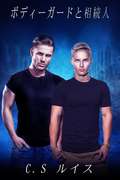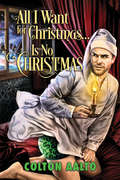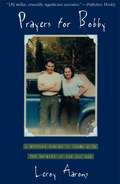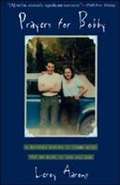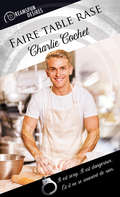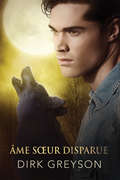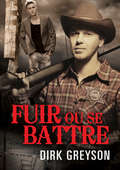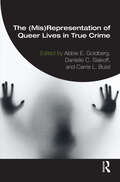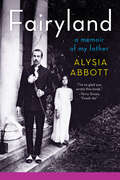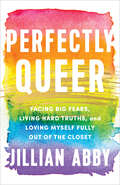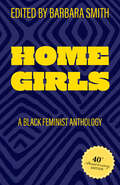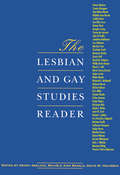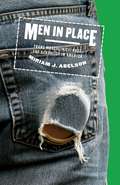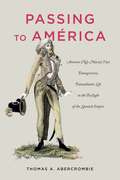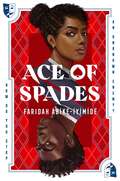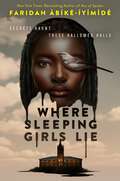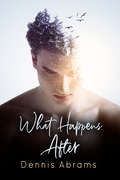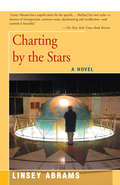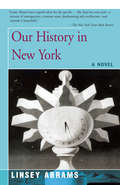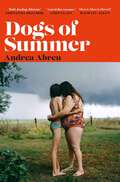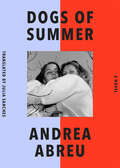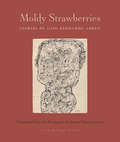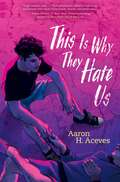- Table View
- List View
ボディーガードと相続人
by C. S ルイス少し危険な仕事のために軍を離れたのは、ネイサン·マンソンが探していた全てだった。強くて時々横柄なネーサンは、すぐに彼が頭の上にいるのに気づいた。製薬業界の巨人である強力なアーサー·マディソンに雇われ、彼はアーサーの最大の資産の最高の責任者に置かれました:アーサーの一人息子、クリスチャン、マディソンの財産の相続人を保護します。 相続人の邸宅への攻撃はすぐに彼の人生とクリスチャンを危険にさらします。ネイサンは跡取り相続人を救うために、彼の訓練と技術をすべてテストに入れなければならない。ネイサンは能力があり準備ができているにもかかわらず、彼が若い男に対して感じる感情と愛情は、彼を殺すのに間違いない。 彼はクリスチャン、彼の心を盗んだ人を救うために、これらの非常に感情を脇に置く必要があります。
All I Want for Christmas… Is No Christmas (2016 Advent Calendar - Bah Humbug)
by Colton AaltonAlec Ryder's arrest in Aspen, early on the morning of December twenty-fifth, is the latest disaster in his series of unhappy Christmases. He's dreaded the holiday since being subjected to endless church services as a child. Being kicked out on Christmas Day after he came out to his parents, followed by an improbable series of yearly yuletide trips to the emergency room, haven't made his Christmases any merrier. But getting busted for prostitution is the worst catastrophe; it means Alec's dream of a college degree is gone, replaced by the specter of jail time. Just when Alec thinks things can't get worse, Hayden Adler shows up to interrogate him. Hayden is a glamorous attorney who also happens to be Alec's college roommate's cousin. Alec's had a crush on Hayden for years, but whatever miniscule chance Alec might've had is now history--just like the life he's been trying to build for himself. But things aren't quite what they seem. In a long line of miserable Christmases, Alec will never forget this one, although not for the reasons he suspects.A story from the Dreamspinner Press 2016 Advent Calendar "Bah Humbug."
Prayers for Bobby
by Leroy AaronsBobby Griffith was an all-American boy ...and he was gay. Faced with an irresolvable conflict-for both his family and his religion taught him that being gay was "wrong"-Bobby chose to take his own life. <p> Prayers for Bobby, nominated for a 1996 Lambda Literary Award, is the story of the emotional journey that led Bobby to this tragic conclusion. But it is also the story of Bobby's mother, a fearful churchgoer who first prayed that her son would be "healed," then anguished over his suicide, and ultimately transformed herself into a national crusader for gay and lesbian youth. <P> As told through Bobby's poignant journal entries and his mother's reminiscences, Prayers for Bobby is at once a moving personal story, a true profile in courage, and a call to arms to parents everywhere.
Prayers for Bobby: A Mother's Coming to Terms with the Suicide of Her Gay Son
by Leroy AaronsBobby Griffith was an all-American boy ...and he was gay. Faced with an irresolvable conflict--for both his family and his religion taught him that being gay was "wrong"--Bobby chose to take his own life. Prayers for Bobby, nominated for a 1996 Lambda Literary Award, is the story of the emotional journey that led Bobby to this tragic conclusion. But it is also the story of Bobby's mother, a fearful church goer who first prayed that her son would be "healed," then anguished over his suicide, and ultimately transformed herself into a national crusader for gay and lesbian youth. As told through Bobby's poignant journal entries and his mother's reminiscences, Prayers for Bobby is at once a moving personal story, a true profile in courage, and a call to arms to parents everywhere.
Faire table rase (Dreamspun Desires (Français) #7)
by Myriam Abbas Charlie CochetIl est sexy. Il est dangereux. Et il ne se souvient de rien. En tant que propriétaire d’Apple’N Pies, Joe Applin mène une vie calme et sans histoire, satisfait de passer ses journées à servir des clients qui viennent de partout pour manger ses délicieuses tartes faites maison. Avec sa bande hétéroclite – Bea, Elsie et Donnie – Joe ne pourrait pas être plus heureux dans son petit royaume de pâtisseries et de café. L’expérience a appris à Joe que l’amour est surfait – et parfois, dangereux. Il n’a aucune intention de répéter ses erreurs passées. Mais il rencontre cet homme beau et mystérieux sans nom ni souvenirs, et Joe ne peut nier que quelque chose de doux se trame. Il n’est pas du genre à prendre des risques, pas avec son cœur et certainement pas avec sa vie, pourtant plus il passe de temps avec « Tom », plus il se rapproche de perdre les deux.
Âme sœur disparue
by Myriam Abbas Dirk GreysonLe loup-garou Falco Gladstone avait su que Carter McCloud était son âme sœur quand ils étaient en cinquième, mais l’école et le système de foyers d’accueil les avaient séparés brutalement. Des années plus tard, Falco est le numéro deux de sa meute dans le Michigan, au service d’un oncle qui se soucie davantage de son pouvoir que du bien-être de leur peuple. L’alpha ordonne à Falco de se marier et d’avoir une descendance – mais Falco a déjà trouvé son âme sœur, et les âmes sœurs sont éternelles. La vie solitaire de Carter est bouleversée quand il détecte une odeur familière apportée par le vent. Les âmes sœurs se sont peut-être retrouvées, mais leur bonheur éternel est loin d’être garanti. L’engagement de Falco envers Carter le met en désaccord avec les plans de son oncle, mais quand un des exécuteurs de l’alpha commence à prendre le couple en filature, quelque chose doit être fait. Quelque chose qui renforcera leur relation ou la détruira une fois pour toutes.
Fuir ou se battre
by Myriam Abbas Dirk GreysonLe Comté de Hartwick, dans le Dakota du Sud, signifie un nouveau départ pour Mackenzie Redford surnommé « Mack ». La vie dans une grande ville n’a pas été ce qu’il en attendait, et maintenant il est de retour chez lui où il officie en tant que shérif. Brantley Calderone est aussi à la recherche d’une nouvelle vie. Après avoir quitté New York et acheté un ranch, il s’installe et s’habitue à vivre à un rythme différent – jusqu’à ce qu’il découvre un cadavre sous son porche et se retrouve être le principal suspect du meurtre. Mack et Brantley se rendent rapidement compte de plusieurs choses : quelqu’un essaie d’incriminer Brantley ; il n’est plus en sécurité seul dans son ranch ; et il y a une attirance manifeste qui se développe entre eux qui ne fait que croître lorsque Mack propose à Brantley de séjourner chez lui. Mais tandis que leur romance s’intensifie, le tueur en fait de même. Ils devront garder un coup d’avance et découvrir qui veut tuer Brantley avant qu’il ne soit trop tard. Ce ne sera qu’à ce moment-là qu’ils pourront commencer la nouvelle vie qu’ils recherchent tous les deux – ensemble.
The (Mis)Representation of Queer Lives in True Crime
by Abbie E. Goldberg, Danielle C. Slakoff, and Carrie L. BuistThis book examines the representation and misrepresentation of queer people in true crime, addressing their status as both victims and perpetrators in actual crime, as well as how the media portrays them. The chapters apply an intersectional perspective in examining criminal cases involving LGBTQ people, as well as the true crime media content surrounding the cases. The book illuminates how sexual orientation, gender, race, and other social locations impact the treatment of queer people in the criminal legal system and the mass media. Each chapter describes one or more high-profile criminal cases involving queer people (e.g., the murders of Brandon Teena and Kitty Genovese; serial killer Aileen Wuornos; the Pulse nightclub mass shooting). The authors examine how the cases are portrayed in the media via news, films, podcasts, documentaries, books, social media, and more. Each chapter discusses not only what is visible or emphasized by the media but also what is invisible in the accounting or societal focus surrounding the case. Lesser-known (but similar) cases are used in the book to call attention to how race, gender, sexuality, sexual orientation, social class, and/or other features influence the dominant narrative surrounding these cases. Each chapter addresses "teachable moments" from each case and its coverage, leaving readers with several considerations to take with them into the future. The book also provides media resources and supplemental materials so that curious readers, including scholars, students, content creators, and advocates, can examine the cases and media content further. The book will appeal to scholars and students of criminology, psychology, sociology, law, media studies, sexuality studies, and cultural studies, and people with an interest in true crime.
Fairyland: A Memoir of My Father
by Alysia AbbottFinalist for a Lambda Literary Award and a San Francisco Chronicle Best Book of the Year In this vibrant memoir, Alysia Abbott recounts growing up in 1970s San Francisco with Steve Abbott, a gay, single father during an era when that was rare. Reconstructing their time together from a remarkable cache of Steve’s writings, Alysia gives us an unforgettable portrait of a tumultuous, historic period in San Francisco as well as an exquisitely moving account of a father’s legacy and a daughter’s love.
Perfectly Queer: Facing Big Fears, Living Hard Truths, and Loving Myself Fully Out of the Closet
by Jillian AbbyThis humorous, heartwarming memoir follows a wife and mother's journey of self-discovery and acceptance as she comes out as a lesbian in her late 30s.Jill had a happy, healthy 20-year relationship with her college sweetheart, two wonderful kids, and rescue cat from the Humane Society. They lived in a nice suburban home with a white picket fence and owned a small bar that was rated one of the &“Best Mom & Pop&” businesses in Tampa Bay. From the outside, everything looked perfect.Perfectly Queer takes the reader on Jillian Abby's poignant and painfully funny rollercoaster of self-discovery as she identifies and eventually accepts herself as a lesbian just before her 40th birthday. Living her new truth means leaving behind a life that, by societal standards, is nearly perfect.This is a story for anyone who is hiding a piece of themselves and wants to know if it&’s safe to be revealed. It&’s for the parent who must choose between their own happiness and the stability of their family, wondering if prioritizing themselves is selfish. It&’s for the person potentially facing a major life upheaval filled with unknowns in the future who is seeking reassurance that everything will work out just fine. It&’s a story of hope and inspiration to those who are starting or are in the middle of their journey, and an affirmation to those who have been through it to stand proudly on the other side.
Home Girls, 40th Anniversary Edition: A Black Feminist Anthology
by Tania Abdulahad Donna Allegra Barbara A. Banks Becky Birtha Cenen Cheryl Clarke Michelle Cliff Michelle T. Clinton Willi Willie Coleman Toi Derricotte Alexis De Veaux Jewelle L. Gomez Akasha Gloria Hull Patricia Spears Jones June Jordan Audre Lorde Raymina Y. Mays Deidre McCalla Chirlane McCray Pat Parker Linda C. Powell Bernice Johnson Reagon Spring Redd Gwendolyn Rogers Kate Rushin Ann Allen Shockley Barbara Smith Beverly Smith Shirley O. Steele Luisah Teish Jameelah Waheed Alice Walker Renita J. WeemsHome Girls, the pioneering anthology of Black feminist thought, features writing by Black feminist and lesbian activists on topics both provocative and profound. Since its initial publication in 1983, it has become an essential text on Black women's lives and contains work by many of feminism's foremost thinkers. This edition features an updated list of contributor biographies and an all-new preface that provides Barbara Smith the opportunity to look back on forty years of the struggle, as well as the influence the work in this book has had on generations of feminists. The preface from the previous Rutgers edition remains, as well as all of the original pieces, set in a fresh new package. Contributors: Tania Abdulahad, Donna Allegra, Barbara A. Banks, Becky Birtha, Cenen, Cheryl Clarke, Michelle Cliff, Michelle T. Clinton, Willi (Willie) M. Coleman, Toi Derricotte, Alexis De Veaux, Jewelle L. Gomez, Akasha (Gloria) Hull, Patricia Spears Jones, June Jordan, Audre Lorde, Raymina Y. Mays, Deidre McCalla, Chirlane McCray, Pat Parker, Linda C. Powell, Bernice Johnson Reagon, Spring Redd, Gwendolyn Rogers, Kate Rushin, Ann Allen Shockley, Barbara Smith, Beverly Smith, Shirley O. Steele, Luisah Teish, Jameelah Waheed, Alice Walker, and Renita J. Weems.
The Lesbian and Gay Studies Reader
by Henry AbeloveBringing together forty-two groundbreaking essays--many of them already classics--The Lesbian and Gay Studies Reader provides a much-needed introduction to the contemporary state of lesbian/gay studies, extensively illustrating the range, scope, diversity, appeal, and power of the work currently being done in the field. Featuring essays by such prominent scholars as Judith Butler, John D'Emilio, Kobena Mercer, Adrienne Rich, Gayle Rubin, and Eve Kosofsky Sedgwick, The Lesbian and Gay Studies Reader explores a multitude of sexual, ethnic, racial, and socio-economic experiences. Ranging across disciplines including history, literature, critical theory, cultural studies, African American studies, ethnic studies, sociology, anthropology, psychology, classics, and philosophy, this anthology traces the inscription of sexual meanings in all forms of cultural expression. Representing the best and most significant English language work in the field, The Lesbian and Gay Studies Reader addresses topics such as butch-fem roles, the cultural construction of gender, lesbian separatism, feminist theory, AIDS, safe-sex education, colonialism, S/M, Oscar Wilde, Gertrude Stein, children's books, black nationalism, popular films, Susan Sontag, the closet, homophobia, Freud, Sappho, the media, the hijras of India, Robert Mapplethorpe, and the politics of representation. It also contains an extensive bibliographical essay which will provide readers with an invaluable guide to further reading.Contributors: Henry Abelove, Tomas Almaguer, Ana Maria Alonso, Michele Barale, Judith Butler, Sue-Ellen Case, Danae Clark, Douglas Crimp, Teresa de Lauretis, John D'Emilio, Jonathan Dollimore, Lee Edelman, Marilyn Frye, Charlotte Furth, Marjorie Garber, Stuart Hall, David Halperin, Phillip Brian Harper, Gloria T. Hull, Maria Teresa Koreck, Audre Lorde, Biddy Martin, Deborah E. McDowell, Kobena Mercer, Richard Meyer, D. A. Miller, Serena Nanda, Esther Newton, Cindy Patton, Adrienne Rich, Gayle Rubin, Joan W. Scott, Daniel L. Selden, Eve Kosofsky Sedgwick, Barbara Smith, Catharine R. Stimpson, Sasha Torres, Martha Vicinus, Simon Watney, Harriet Whitehead, John J. Winkler, Monique Wittig, and Yvonne Yarbro-Bejarano
Men in Place: Trans Masculinity, Race, and Sexuality in America
by Miriam J. AbelsonDaring new theories of masculinity, built from a large and geographically diverse interview study of transgender men American masculinity is being critiqued, questioned, and reinterpreted for a new era. In Men in Place Miriam J. Abelson makes an original contribution to this conversation through in-depth interviews with trans men in the U.S. West, Southeast, and Midwest, showing how the places and spaces men inhabit are fundamental to their experiences of race, sexuality, and gender.Men in Place explores the shifting meanings of being a man across cities and in rural areas. Here Abelson develops the insight that individual men do not have one way to be masculine—rather, their ways of being men shift between different spaces and places. She reveals a widespread version of masculinity that might be summed up as “strong when I need to be, soft when I need to be,” using the experiences of trans men to highlight the fundamental construction of manhood for all men.With an eye to how societal institutions promote homophobia, transphobia, and racism, Men in Place argues that race and sexuality fundamentally shape safety for men, particularly in rural spaces, and helps us to better understand the ways that gender is created and enforced.
Passing to América: Antonio (Née María) Yta’s Transgressive, Transatlantic Life in the Twilight of the Spanish Empire
by Thomas A. AbercrombieIn 1803 in the colonial South American city of La Plata, Doña Martina Vilvado y Balverde presented herself to church and crown officials to denounce her husband of more than four years, Don Antonio Yta, as a “woman in disguise.” Forced to submit to a medical inspection that revealed a woman’s body, Don Antonio confessed to having been María Yta, but continued to assert his maleness and claimed to have a functional “member” that appeared, he said, when necessary.Passing to América is at once a historical biography and an in-depth examination of the sex/gender complex in an era before “gender” had been divorced from “sex.” The book presents readers with the original court docket, including Don Antonio’s extended confession, in which he tells his life story, and the equally extraordinary biographical sketch offered by Felipa Ybañez of her “son María,” both in English translation and the original Spanish. Thomas A. Abercrombie’s analysis not only grapples with how to understand the sex/gender system within the Spanish Atlantic empire at the turn of the nineteenth century but also explores what Antonio/María and contemporaries can teach us about the complexities of the relationship between sex and gender today.Passing to América brings to light a previously obscure case of gender transgression and puts Don Antonio’s life into its social and historical context in order to explore the meaning of “trans” identity in Spain and its American colonies. This accessible and intriguing study provides new insight into historical and contemporary gender construction that will interest students and scholars of gender studies and colonial Spanish literature and history.
Passing to América: Antonio (Née María) Yta’s Transgressive, Transatlantic Life in the Twilight of the Spanish Empire
by Thomas A. AbercrombieIn 1803 in the colonial South American city of La Plata, Doña Martina Vilvado y Balverde presented herself to church and crown officials to denounce her husband of more than four years, Don Antonio Yta, as a “woman in disguise.” Forced to submit to a medical inspection that revealed a woman’s body, Don Antonio confessed to having been María Yta, but continued to assert his maleness and claimed to have a functional “member” that appeared, he said, when necessary.Passing to América is at once a historical biography and an in-depth examination of the sex/gender complex in an era before “gender” had been divorced from “sex.” The book presents readers with the original court docket, including Don Antonio’s extended confession, in which he tells his life story, and the equally extraordinary biographical sketch offered by Felipa Ybañez of her “son María,” both in English translation and the original Spanish. Thomas A. Abercrombie’s analysis not only grapples with how to understand the sex/gender system within the Spanish Atlantic empire at the turn of the nineteenth century but also explores what Antonio/María and contemporaries can teach us about the complexities of the relationship between sex and gender today.Passing to América brings to light a previously obscure case of gender transgression and puts Don Antonio’s life into its social and historical context in order to explore the meaning of “trans” identity in Spain and its American colonies. This accessible and intriguing study provides new insight into historical and contemporary gender construction that will interest students and scholars of gender studies and colonial Spanish literature and history.This book is freely available in an open access edition thanks to TOME (Toward an Open Monograph Ecosystem)—a collaboration of the Association of American Universities, the Association of University Presses and the Association of Research Libraries—and the generous support of New York University. Learn more at the TOME website: openmonographs.org.
Ace of Spades
by Faridah Àbíké-ÍyímídéGossip Girl meets Get Out in Ace of Spades, a YA contemporary thriller by debut author Faridah Àbíké-Íyímídé about two students, Devon & Chiamaka, and their struggles against an anonymous bully. All you need to know is . . . I’m here to divide and conquer. <P><P>Like all great tyrants do. —Aces When two Niveus Private Academy students, Devon Richards and Chiamaka Adebayo, are selected to be part of the elite school’s senior class prefects, it looks like their year is off to an amazing start. After all, not only does it look great on college applications, but it officially puts each of them in the running for valedictorian, too. <P><P>Shortly after the announcement is made, though, someone who goes by Aces begins using anonymous text messages to reveal secrets about the two of them that turn their lives upside down and threaten every aspect of their carefully planned futures. <P><P>As Aces shows no sign of stopping, what seemed like a sick prank quickly turns into a dangerous game, with all the cards stacked against them. Can Devon and Chiamaka stop Aces before things become incredibly deadly? <P><P>With heart-pounding suspense and relevant social commentary comes a high-octane thriller from debut author Faridah Àbíké-Íyímídé. <P><P><b>A New York Times Bestseller</b>
Where Sleeping Girls Lie
by Faridah Àbíké-ÍyímídéIn Where Sleeping Girls Lie — a YA contemporary mystery by Faridah Àbíké-Íyímídé, the New York Times-bestselling author of Ace of Spades — a girl new to boarding school discovers dark secrets and coverups after her roommate disappears. <p><p> It’s like I keep stumbling into a dark room, searching for the switch to make things bright again... <p><p> Sade Hussein is starting her third year of high school, this time at the prestigious Alfred Nobel Academy boarding school, after being home-schooled. Misfortune has been a constant companion throughout her life, but even Sade doesn’t expect her new roommate, Elizabeth, to disappear after Sade’s first night. Or for people to think she had something to do with it. <p><p> With rumors swirling around her, Sade catches the attention of the girls collectively known as the Unholy Trinity and they bring her into their fold. Between learning more about them—especially Persephone, who Sade is inexplicably drawn to—and playing catchup in class, Sade already has so much on her plate. But when it seems people don't care enough about what happened to Elizabeth, it's up to her and Elizabeth's best friend, Baz, to investigate. <p><p> And then a student is found dead. <p><p> As Sade and Baz keep trying to figure out what’s going on, Sade realizes there’s more to Alfred Nobel Academy and its students than she thought. Secrets lurk around every corner and beneath every surface…Secrets that rival even her own. <p> <b>New York Times Bestseller</b>
What Happens After
by Dennis AbramsCollin and his best friend, Nate, are high school juniors living in a suburb of Houston, where the politically and culturally conservative attitude makes coming out beyond difficult. One night they decide it would be a bit of harmless fun to sneak into a gay club in the city—a chance to dance, check out guys, and meet others like themselves. They couldn’t be more wrong. In minutes everything Collin took for granted is destroyed when a shooter’s bullets tear through the club. Collin survives, but that’s only the start of his ordeal. In the aftermath he has to face the loss of his friend, survivor’s guilt, the pain of his wounds, and judgment when he’s outed on a national level. Making it through his last year of school feels impossible when life as he knew it will never be the same.
Charting by the Stars
by Linsey AbramsMs. magazine called Charting by the Stars "a memorable account of growing up about the ways we invent and reinvent ourselves reminiscent of Margaret Atwood's Surfacing." Linsey Abrams' passionate and eloquent first novel chronicles one girl's coming of age, from a 1950s childhood into the '60s world of New York. Her love affair with another woman begins a profound shift of identity and world. The New York Times said of this nationally reviewed novel: "Abrams has a superb talent for the specific. . . . She [has] her own style--a mixture of introspection, common sense, daydreaming and recollection-and controls it beautifully."
Our History in New York: A Novel
by Linsey AbramsOur History in New York covers a single year in the lives of narrator Chloe, her long-time lover, Helen, and their friends. From AIDS to the glory of Greenwich Village to romance and aging, the novel addresses time, art, mortality, and community at a century's end. The New York Times said of this nationally reviewed author: "Abrams has a superb talent for the specific . . . She [has] her own style-a mixture of introspection, common sense, daydreaming and recollection-and controls it beautifully." Sojourner called "each chapter an exquisite short story. . . . Abrams paints . . . neighborhoods with the precision of the old Dutch Masters."
The Other Mother: A Lesbian's Fight for Her Daughter
by Nancy AbramsOn a spring day in 1993, Nancy Abrams helped her daughter dress for day care, packed her lunch, and said good-bye. Next she drove to court, where she learned that in the eyes of the law she was nothing more than "a biological stranger'" to the child she helped bring into the world and raise. That was the last time she would see her daughter or hear her voice for five years. The Other Mother begins as Abrams and her female lover decide to begin a family together. With giddy anticipation, they search for a sperm donor, shop for baby clothes and crib, and attend childbirth classes. But despite their high hopes, the relationship begins to fall apart, and they separate when their daughter is a toddler. Problems between the two intensify until, shortly before her daughter's fifth birthday, Abrams loses custody. In unprecedented depth, Abrams's compelling narrative examines the social, legal, and political implications of gay and lesbian parenting. Her haunting memoir asks the question, "What makes a mother?" It is a question that biological parents, co-parents, adoptive parents, step-parents, and divorced parents must each answer in their own way. In telling one woman's story, The Other Mother makes a solid case for legal protections, including marriage, for lesbian and gay families.
Dogs of Summer
by Andrea AbreuTranslated by Julia Sanches.'A rich and prophetic world of women and low, grey clouds that merge with the sea. Pure poetry' Pilar Quintana'Andrea Abreu is a lively meteorite in the landscape of Hispanic Literature' Fernanda Melchor'I am overwhelmed. What a marvellous book, what a miracle' Sara MesaIt is June and Shit is sad. She knows she will not get to leave her neighbourhood that summer, and the beach is far, far away. And that clouds like the bottom of a donkey's belly will hover all summer over her town, high among the volcanoes of northern Tenerife.But Shit - our nine-year-old narrator - has a best friend, Isora. Shit likes everything about Isora. The colour of her arms and her hair and her eyes. Her handwriting and the way she wrote the letter g with a huge tail. The way she called her shit because poop was a beautiful thing like the mist round the pines. But she envies her too. Envies her grits and gut. The way she talks to grown ups. The fact that she had got her period and had pubes on her minky.As the summer goes on, Shit finds it increasingly hard to keep up with Isora - one year older and growing up at full tilt without her. When Shit's submissiveness veers into obsession and a painful sexual awakening, desire becomes indistinguishable from intimate violence. Braiding prose poetry with bachata lyrics and the gritty humour of Canary dialect, Dogs of Summer is a brutal picture of girlhood in the 90s and a story, told with exquisite yearning, of a friendship that simmers into erotic desire over the course of one hot summer.
Dogs of Summer: A Novel
by Andrea Abreu"Read this coming-of-age story for its unsparing language and vivid sense of place."—The New York Times My Brilliant Friend meets Blue is the Warmest Color in this lyrical debut novel set in a working-class neighborhood of the Canary Islands—a story about two girls coming of age in the early aughts and a friendship that simmers into erotic desire over the course of one hot summer.High near the volcano of northern Tenerife, an endless ceiling of cloud cover traps the working class in an abject, oppressive heat. Far away from the island&’s posh resorts, two girls dream of hitching a ride down to the beach and escaping their horizonless town. It&’s summer, 2005, and our ten-year-old narrator is consumed by thoughts of her best friend Isora. Isora is rude and bossy, but she&’s also vivacious and brave; grownups prefer her, and boys do, too. That's why sometimes she gets jealous of Isora, who already has hair on her vagina and soft, round breasts. But she's definitely not jealous that Isora&’s mother is dead, nor that Isora's fat, foul-mouthed grandmother has her on a diet, so that she is constantly sticking her fingers down her throat. Besides, she would do anything for Isora: gorge herself on cakes when her friend wants to watch, follow her to the bathroom when she takes a shit, log into chat rooms to swap dirty instant messages with strangers. But increasingly, our narrator finds it hard to keep up with Isora, who seems to be growing up at full tilt without her—and as her submissiveness veers into a painful sexual awakening, desire grows indistinguishable from intimate violence. Braiding prose poetry with bachata lyrics and the gritty humor of Canary dialect, Dogs of Summer is a story of exquisite yearning, a brutal picture of girlhood and a love song written for the vital community it portrays.
Moldy Strawberries: Stories
by Caio AbreuCaio Fernando Abreu is one of those authors who is picked up by every generation. Surreal and gripping stories about desire, tyranny, fear, and love, from one of Brazil&’s greatest queer writers, whose work is appearing in English for the first time.In 18 gripping and daring stories filled with tension and intimacy, Caio Fernando Abreu navigates a Brazil transformed by the AIDS epidemic and stifling military dictatorship of the 80s. Tenderly suspended between fear and longing, Abreu&’s characters grasp for connection:A man speckled with Carnival glitter crosses a crowded dance floor and seeks the warmth and beauty of another body.A budding office friendship between two young men turns into a surprising love, &“a strange and secret harmony." One man desires another but fears a clumsy word or gesture might tear their plot to pieces. After so many precarious offerings--a salvaged cigarette, a knock on the door from withing the downpour of a dream, or a tight-lipped smile--Abreu&’s schemes explode and implode. Junkies, failed revolutionaries, poets, and conflicted artists face threats at every turn. But, inwardly ferocious and secretly resilient, they heal. For Caio Fernando Abreu there is beauty on the horizon, mingled with luminous memory and decay. Translated by Bruna Dantas Lobato, currently an Iowa Arts Fellow and MFA candidate in Literary Translation at the University of Iowa.
This Is Why They Hate Us
by Aaron H. AcevesThis fun, irreverent summer romp is Netflix&’s Never Have I Ever meets What If It&’s Us about a high school senior determined to get over his unrequited feelings for his best friend by getting under someone else.Enrique &“Quique&” Luna has one goal this summer—get over his crush on Saleem Kanazi by pursuing his other romantic prospects. Never mind that he&’s only out to his best friend, Fabiola. Never mind that he has absolutely zero game. And definitely forget the fact that good and kind and, not to mention, beautiful Saleem is leaving LA for the summer to meet a girl his parents are trying to set him up with. Luckily, Quique&’s prospects are each intriguing in their own ways. There&’s stoner-jock Tyler Montana, who might be just as interested in Fabiola as he is in Quique; straitlaced senior class president, Ziggy Jackson; and Manny Zuniga, who keeps looking at Quique like he&’s carne asada fresh off the grill. With all these choices, Quique is sure to forget about Saleem in no time. But as the summer heats up and his deep-seated fears and anxieties boil over, Quique soon realizes that getting over one guy by getting under a bunch of others may not have been the best laid plan and living his truth can come at a high cost.
